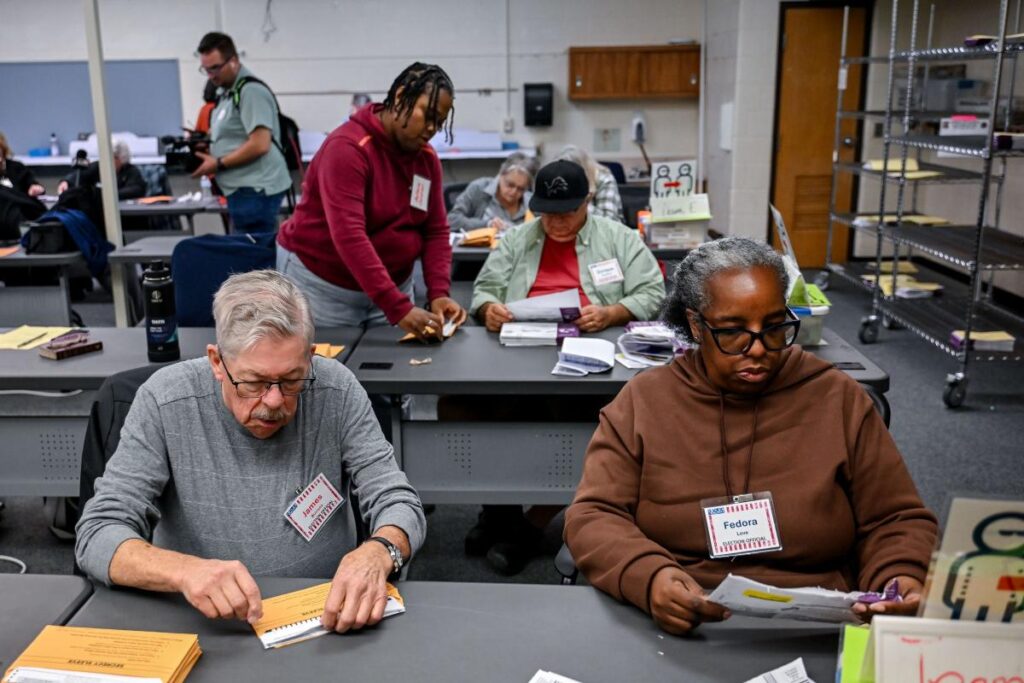The day after the local elections in Greater Lansing has revealed a tightly contested political landscape, particularly highlighted by the U.S. Senate race between Republican Mike Rogers and Democrat Elissa Slotkin. With over 95% of the state’s unofficial results in by Wednesday morning, the two candidates were virtually tied in a battle that captivated the region’s voters. Areas such as Eaton County leaned slightly towards Rogers, who secured 50.1% of the vote there, while Clinton County showed a stronger preference for the Republican candidate with 53%. In stark contrast, Ingham County heavily supported Slotkin, granting her 66% of the votes. This contentious race underscores the fierce political divides and shifting demographics within Michigan, setting the stage for a prolonged period of scrutiny as officials continue to tally the final votes.
The results from Eaton and Ingham counties also revealed voters’ decisions on key proposals. In Eaton County, a proposed increase in the operating millage was rejected, signaling a reluctance among voters to raise taxes at the local level. Meanwhile, Ingham County voters approved a special millage aimed at enhancing housing options for low-income and underhoused residents, demonstrating a commitment to addressing housing insecurity in the region. However, a proposal to increase the hotel excise tax in Ingham County—a measure intended to boost tourism and convention business—was rejected by voters. These local ballot measures reflect broader community priorities and the electorate’s sentiments regarding economic sustainability and social welfare.
In the State House races, incumbents generally fared well, with several Democrats securing re-election despite the competitive climate. Notably, Angela Witwer, a Democrat representing the 76th District, won a narrow victory against Republican challenger Andy Shaver. Other Democratic incumbents, including Julie Brixie (73rd District), Kara Hope (74th District), Penelope Tsernoglou (75th District), and Emily Dievendorf (77th District), continued their tenure in the legislature, affirming the ongoing strength of Democrats in these districts. Republican incumbents Brian BeGole (71st District) and Gina Johnsen (78th District) also retained their seats. The outcomes in these races might signal continued partisan divides as both parties strategize for future electoral battles.
Adding a notable shift to the political narrative, Republican Tom Barrett emerged victorious in the 7th Congressional District, flipping a seat previously held by Democrats. The election was marked as one of the most competitive U.S. House races in the nation, with Barrett’s win over Democrat Curtis Hertel highlighting the potential for Republican gains in a state that has seen fluctuating allegiances in recent election cycles. This result brings forward questions of electoral strategies, voter behavior, and the implications such a shift might hold for the upcoming national elections. The dynamics of this district may also affect how candidates position themselves in future races, as they respond to the changing concerns of their constituents.
As election results are finalized and the implications of these races sink in, the Greater Lansing community and its political landscape appear poised for a period of reflection and realignment. The close nature of several races, particularly the Senate contest, suggests that voter sentiment is polarized, with significant engagement from both parties. Analysts and political strategists will likely dissect these results to decipher underlying trends that affected voter decisions, including issues such as economic stability, education, and social policies. The local election outcomes not only influence governance but also lay groundwork for mobilizing efforts in preparation for future contests.
In conclusion, the aftermath of the recent local elections in Greater Lansing illustrates a vivid tapestry of political engagement and community priorities. With tight races at both local and state levels, the results reflect an electorate that is actively involved in shaping its political future. As lawmakers and officials begin to address the voters’ decisions and the pressing issues at hand—including housing, taxation, and economic growth—the stage is set for a dynamic and potentially transformative political landscape in mid-Michigan. Continued analysis and discussions surrounding these outcomes will be crucial in aligning government efforts with the constituents’ needs and aspirations, pointing to a future marked by an evolving dialogue between voters and their representatives.

